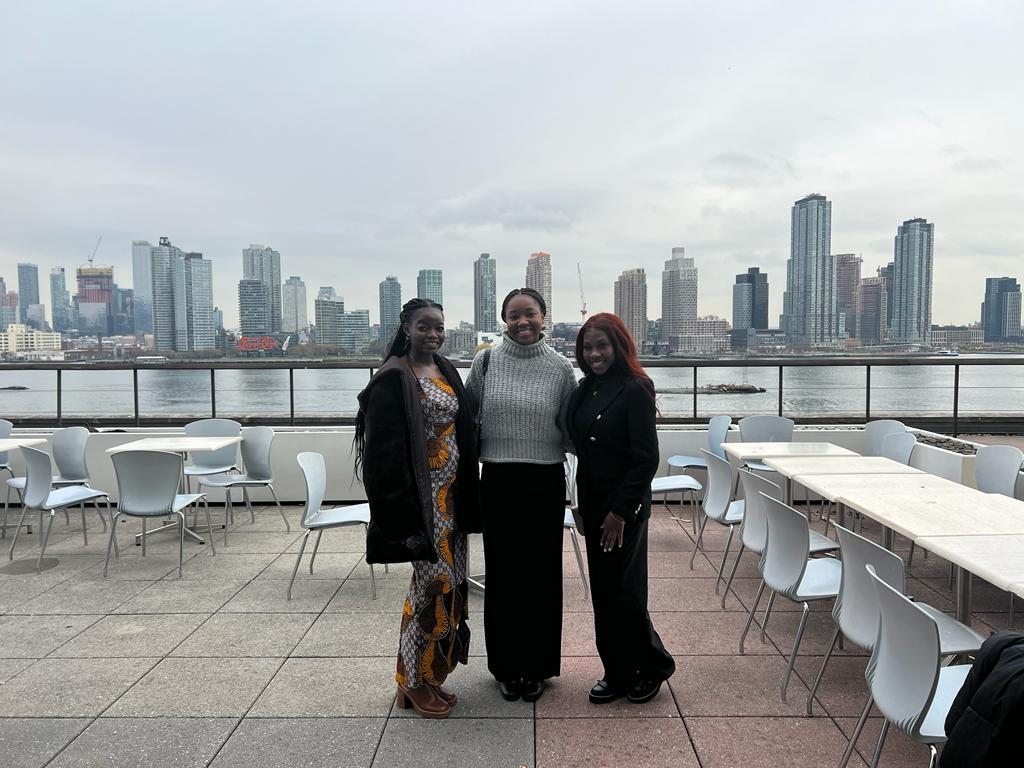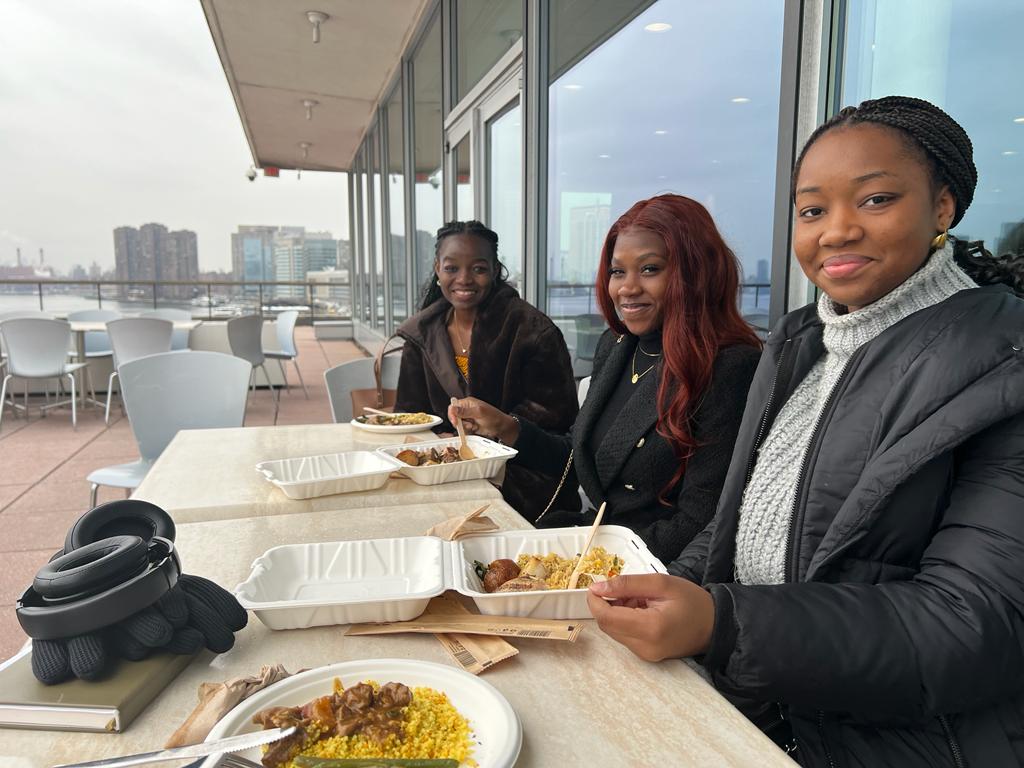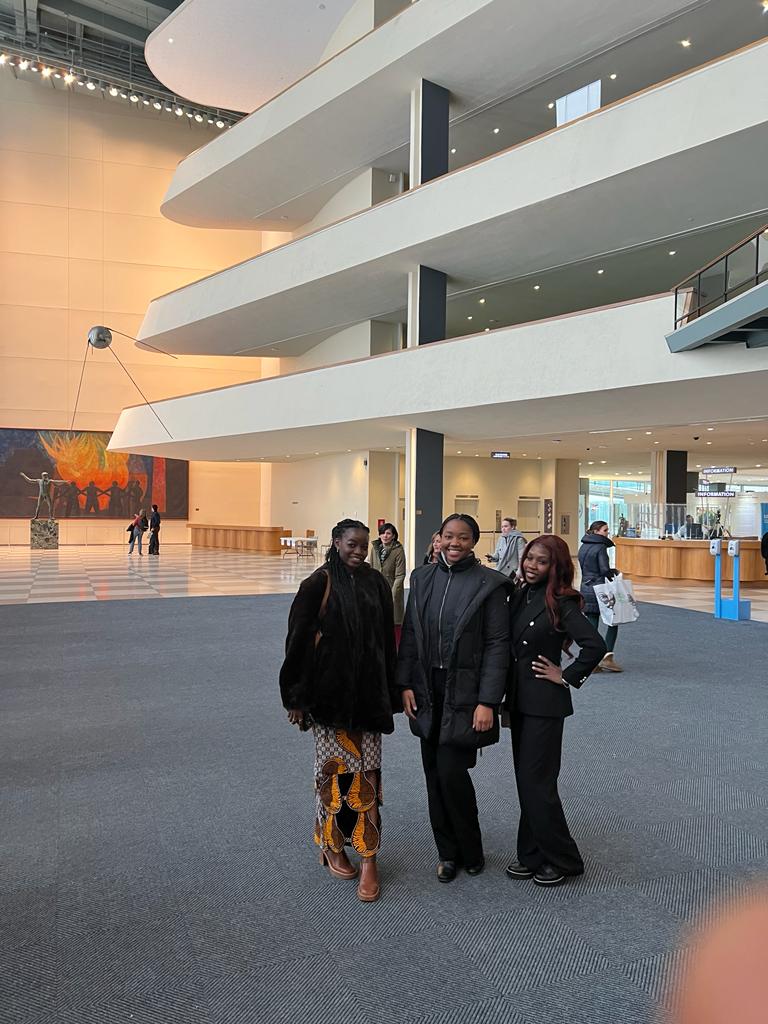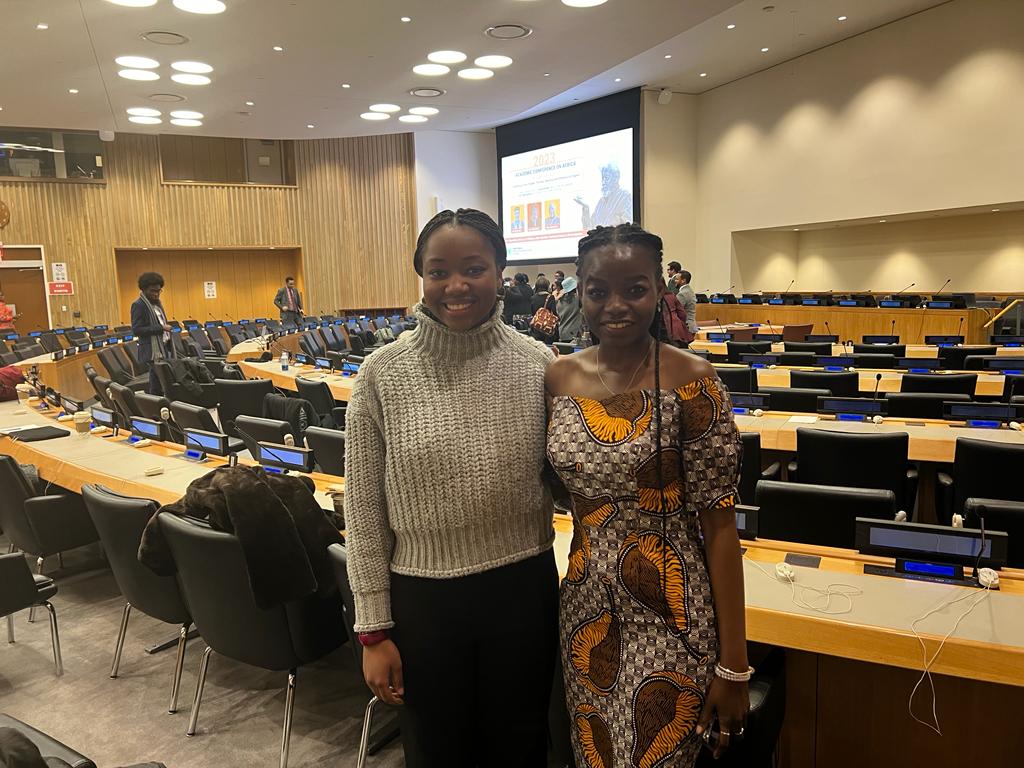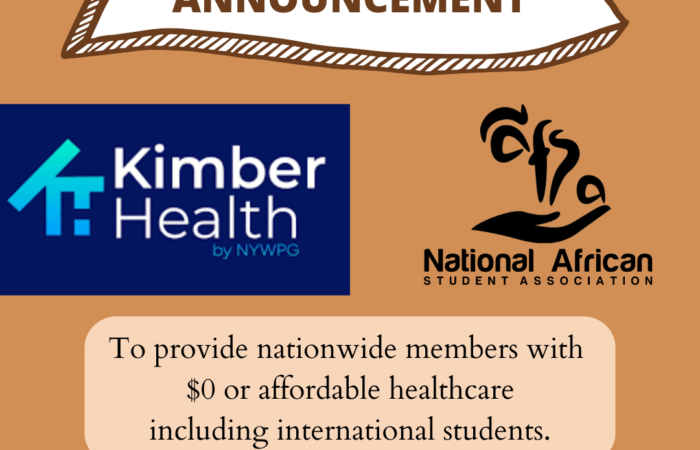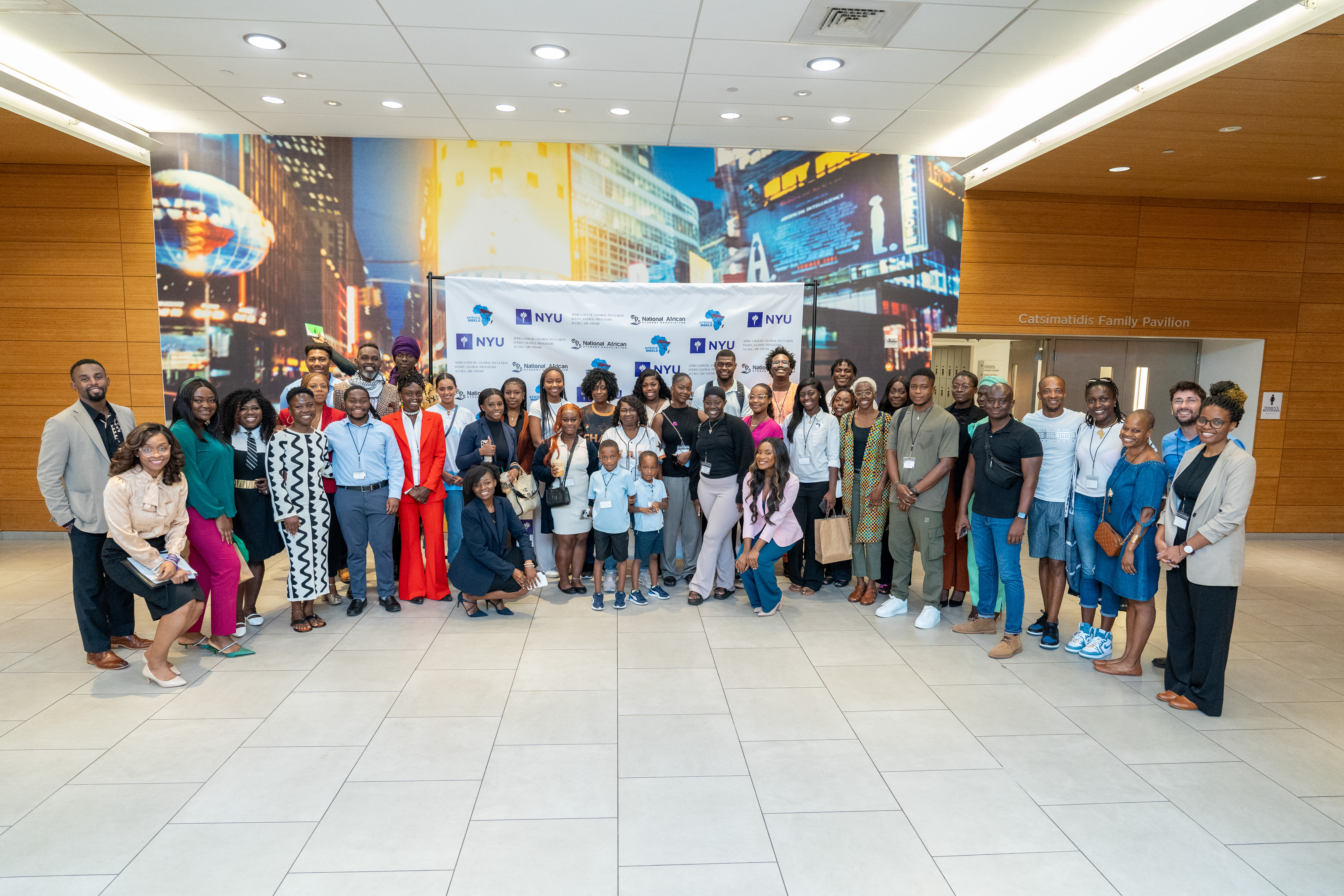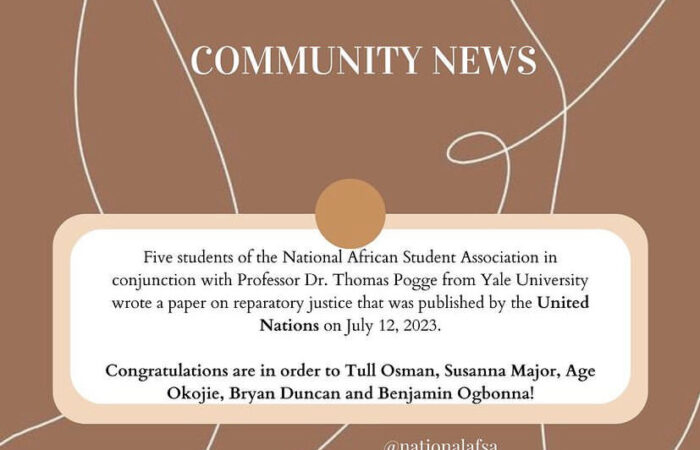Deborah Denis LinkedIn: http://linkedin.com/in/deborah-denis-7661bb111
Earlier this month, I attended the United Nations Office of the Special Advisor on Africa’s (UN-OSAA) Academic Conference on Africa titled Redefining African Futures: The State, Resilience and Pathways to Progress. The UN-OSAA designed and implemented this first-of-its-kind conference to bring together the continent’s brightest minds and influential figures, a community of students, academics, African diaspora, and relevant stakeholders to dialogue on themes such as statehood, resilience, and pathways to progress.
I specifically attended the session about the Role of African Academics in building Africa and the World We Want. Among the fantastic speakers for this conference were Prof. Wole Soyinka, Playwright, poet, and political activist, Nobel Laureate in Literature; Prof. Molefi Kete Asante, Professor of Africology; Prof. Toyin Falola, Professor of History; Prof. Frieda Ekotto, Professor of African Studies and Comparative Literature, Prof. Rita Kiki Edozie, Professor of Global Governance and International Relations. While there were so many important issues raised by our enlightened panel of speakers, those that stood out for me were:
- Decolonizing syllabi in African schools/universities to elevate the scholarship and innovative achievements of Africans and people of African descent.
- Espousing African values of community, love, humanity, and morality.
- Sharing the African perspective by elevating African journals, academic work, publications, university ranking system, and historical archives.
I left the conference with one question: What can emerging African leaders do to change these narratives? I spent the past few weeks mulling over these issues, did some further research, and delved into how I and other emerging leaders like me can be transformative in our approach to social change on the African continent.
Africa, a continent of 54 countries, is rich in diverse cultures, languages, ideas, traditions, ways of life, etc. Regardless of this diversity, the defining point of our collective identity is the common issues that influence our economic developmental outcomes as a people. Based on these conversations and many before them, some root causes emerge to me as the barriers African scholarship faces in making breakthroughs within the global educational system. These root causes are the effects of colonialism/neo-colonialism, racism, and bad governance.
For decades, these root causes have plummeted the advancement of the continent in various aspects of development. Elevating academics on the continent will also require delving deeper into how these root causes interplay to stunt academic advancement and how individuals, organizations, and institutions can make strides to minimize its impact and pursue transformative change.
Not until September 2023 was the African Union not part of the then G20, where economic decisions of the world are made. This means that in terms of policymaking and decisions that impact the world economy, Africa has been playing catch up in past years. Economic power is vital to academic and research development. Most African countries have basic livelihood issues to deal with and little to invest in research. Only 0.42% of GDP is invested in research and development in Africa, in sharp contrast to the global average of 1.7%. As long as research funding on the African continent comes from international pockets, we will be at the mercy of donors on what kinds of research is conducted and who gets funding.
Sharing the African perspective will require investment in our journals and publications and teaching Africans from African perspectives. We need to gain the autonomy to reimagine how educational policies are made within the African continent and work on decolonizing syllabi through investing in African scholarship and publications and building curricula that are inclusive of African authors and scholarship, especially in higher education.
According to the World Economic Forum, one in every five persons will be African by 2030. If indeed the future is African, then we must take the lead in championing what it means to be African to the world and not the world telling us how to live. Our cultures, traditions, ways of life, and ways of thinking have been held for generations long before colonialism. We must sit with our elders and relearn our history, what Africa was like before colonialism. Identify what aspects of history are missing in our historical literature and educational syllabi and how we can change that.
The African values of community love and morality must take the lead in our dealings. The temptation to copy Western ways of living is due to colonial mindsets of thinking the Western way is better. We must relearn our traditions and values and be proud of those. Autonomy and freedom of thinking and choice are crucial to creativity, innovation, and progress. Young Africans must relearn what it means to be African; we should stand proud, learn our local languages, share our perspectives, and demand to be heard. The United Nations currently has six major official languages; no native African language is included. However, even the African Union has only Kiswahili as one of the six listed official languages with a clause that says, ‘any other African language.’ If we want to change the perspective of the world about us, we must start by making changes such as elevating our native languages, values systems, and traditions.
In his keynote speech, Prof. Wole Soyinka expanded on how the quality of education in Africa is retrogressing. In addition to the dwindling quality of education, the numbers are staggering more in trained teachers. According to the UNESCO Institute of Statistics, the percentage of trained teachers in sub-Saharan Africa dropped from above 89% in 2000 to 71% in 2020. As of 2022, an average of 67.4% of persons 15 years and older can read in Africa, with the lowest region being West Africa, with a percentage slightly above 54.
This is particularly disturbing because research conducted by the Pew Research Center shows that sub-Saharan immigrants in the US are more educated than native-born populations. This reflects two things: our brightest minds are immigrating to the West, which is no longer news, but the main point is that given available resources and opportunities, Africans love education and will pursue it relentlessly. This is also an opportunity that can be used to share African perspectives in our academic environs abroad, write our research papers, and center our scholarship around Africa. For example, I wrote my research paper and strategy memo in grad school for my international development policy class on the taxation policy in Nigeria. That allowed me to study further policy issues in my country and share that with my professor and class.
Prof. Molefi Asante made a very profound statement, ‘Be Afrocentric in everything you do.’ I have picked this up as a challenge, and I want to challenge all young Africans to be Afrocentric in all our endeavors. Think Africa: how we contribute to the African collective in the design of our products and research should be a guiding question. I spoke with a friend who is a founder of a book club in West Africa, and she mentioned how, moving forward, the group will be intentional about reading books from African authors. We can use our platforms to elevate African values and share knowledge about our cultures and countries. Be it social media, research, classes, art, or fashion. Whatever medium we have can be maximized for elevating the African continent, we can take actionable steps toward transformative change. While a policy approach is necessary for sustainable change, we can also approach this from individual, institutional, and organizational levels, making the most of every opportunity.
As an emerging generation of African leaders, reimagining our role in the advancement of our countries and the continent as a whole is vital to progress. Conferences like this are a platform to share ideas and perspectives and recharge to go back to our respective countries and platforms to take actionable steps towards elevating the motherland. I applaud the organizers, UN-OSSA, for such a brilliant event. I am looking forward to so much more that this office can spearhead in inspiring young Africans to step up to the challenge of breaking through ceilings and changing the world around them, starting from Africa.
